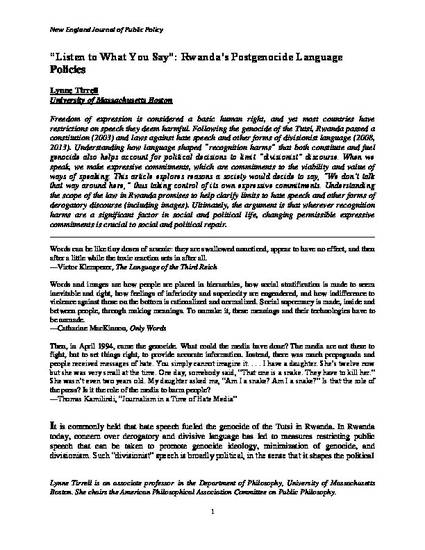
Freedom of expression is considered a basic human right, and yet most countries have restrictions on speech they deem harmful. Following the genocide of the Tutsi, Rwanda passed a constitution (2003) and laws against hate speech and other forms of divisionist language (2008, 2013). Understanding how language shaped “recognition harms” that both constitute and fuel genocide also helps account for political decisions to limit “divisionist” discourse. When we speak, we make expressive commitments, which are commitments to the viability and value of ways of speaking. This article explores reasons a society would decide to say, “We don’t talk that way around here,” thus taking control of its own expressive commitments. Understanding the scope of the law in Rwanda promises to help clarify limits to hate speech and other forms of derogatory discourse (including images). Ultimately, the argument is that wherever recognition harms are a significant factor in social and political life, changing permissible expressive commitments is crucial to social and political repair.
Available at: http://works.bepress.com/lynne_tirrell/1/
